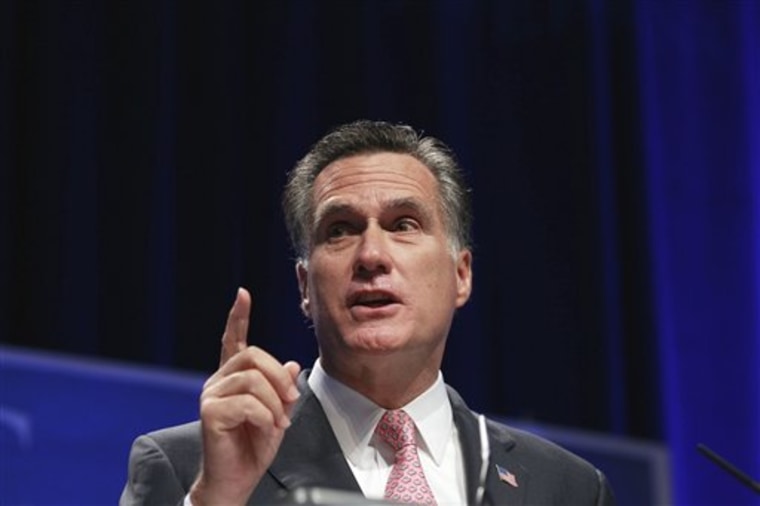Former Massachusetts Gov. Mitt Romney became the second major Republican to announce a challenge to President Barack Obama in 2012, declaring he would "put America back on a course of greatness."
Romney joins another former governor, Minnesota's Tim Pawlenty, in having established what is known as an exploratory committee, a move that allows the candidates to begin raising money and hiring staff for a run at the Republican nomination.
Romney issued his announcement in a Web video shot at the University of New Hampshire, showing his intention to focus on the tiny U.S. state that holds the first-in-the-nation presidential primary vote. His declaration focused mainly on the troubled American economy and said he had "become convinced that America has been put on a dangerous course by Washington politicians, and it has become even worse during the last two years."
While Romney had been widely expected to run, the timing of his announcement caught many off guard.
Polls show him entering the Republican primary fray as the front-runner in what is expected to be a crowded field of candidates. Other likely Obama challengers range from former House of Representatives Speaker Newt Gingrich to House Tea Party notable Rep. Michelle Bachmann, a Minnesotan like Pawlenty.
Romney sought the Republican nomination in the 2008 race that eventually saw Sen. John McCain face Obama. McCain's running mate, former Alaska Gov. Sarah Palin, often is mentioned as a potential candidate this time, but she has been coy about her intentions.
About 12 Republicans' names regularly rise to the top among potential candidates to challenge Obama. The president officially announced last week that he would seek re-election.
Possible obstacles
Romney could face resistance among Republicans who are determined to revoke Obama's health care legislation. The Obama plan, which makes it harder for insurance companies to deny coverage to individuals and creates an insurance pool for tens of thousands of uninsured Americans, was based largely on a system put in place in Massachusetts when Romney was governor. Romney also may be burdened by his Mormon faith, a religious belief that many evangelical Christian Republicans view as a sect.
Romney sought instead to focus on his business resume.
"Across the nation, over 20 million Americans still can't find a job or have given up looking," Romney said.
"How has this happened in the nation that leads the world in innovation and productivity? The answer is that President Obama's policies have failed. He and virtually all the people around him have never worked in the real economy. They just don't know how jobs are created in the private sector."
Romney, a businessman who ran Salt Lake City's Winter Olympics in 2002, has lined up donors, staff and advisers for his presidential bid. He has quietly built a by-the-books campaign organization that is stacked with experienced presidential operatives.
